Electronics is a very interesting and promising subject to start learning. We are for sure living in a digital age. All this digital age is possible because of advancements in electronics.
So, electronics is very important to learn if you want to understand the modern world around you. And want to take part in it.
Just like learning any subject need some pre-request things to have a better understanding of that particular subject. Similarly, electronics demands a few things of itself.
Some of these things are compulsory and some are optional (not completely, but they require you to spend some money).
Alright!
In this article, I will try to answer the question “What do you need to get started with electronics”. Things that you require the most while starting with electronics as a side hobby or taking electronics as a career path.
Look I am not perfect, nor is this article going to be. This is just my limited knowledge try to help you somehow. This is what would be helpful to me when I was just starting out.
I hope you will enjoy it.
Key Points of this Article
- What is electronics in a simple language
- The correct mindset to start with
- Selecting the best course or book for beginners
- Introduction to fundamental tools for setting up your basic lab
- Practice kits to get your hand dirty with some electronics
What do I need to get started with electronics?
The answer to this question is straightforward. All you require is the willpower to do so. Because without willpower there is nothing we can achieve. And yet we underestimate this truly God given power.
Once we set our willpower to learn electronics. The other thing you will need is the right mindset.
1. Correct Mindset
By correct mindset I mean you have to understand that there is no hurry, and you cannot learn electronics in a week. It is not like learning everything overnight.
Learning electronics will take some time. So you have to be patient and trust the learning process, and most importantly, enjoy the process.
Remember to master any skill you are required to spend 10,000 hours on that. It is a lot of time that is why you need to start learning electronics with the correct mindset.
The correct mindset is to enjoy every small victory. Don’t be disheartened. And most importantly do not overdo the learning. This overdoing learning will make you exhausted which is not a good thing.
Learn a concept a do then practice it for a week or month. Then go to the next concept and continue this way. I know it seems slow but trust me this is the most effective way to learn electronics. Forget about the hustle mindset, be like clam water.
2. A starting course or book
The next thing you need to get started with electronics is a good starting book or course. I am saying book or course because I don’t know which type of person you are. I would recommend both, but it is totally up to you.
Following is the book I want you to look at.
Don’t limit yourself to just this book. I mean I love this book and think it is a great way to start. But everyone is different. Look around for a few basic electronics books read their content page and see if you like them or don’t.
Select the book which you truly like from the heart. Your hearts will let you know what is best and what is not.
For the course go to Udemy and search for basic electronics courses. See some courses and invest your time in the one that you resonate with. My opinion is just to stick to one course at a time. Finish it and then look for another one.
3. Basic lab tools
Electronics is a theory plus practice kind of subject. After reading books and taking courses it is time to start building real time circuits and projects.
To do so we need to first set up our basic lab. This lab should not be a fancy place. We need a beach table and the following fundamental tools to get started with electronic circuits.
a. Multimeter
A multimeter is a very fundamental tool when it comes to electronics. You know in electronics we deal with various resistance, capacitance, voltage, current, and so much more.
To measure the above mentioned parameters we use a multimeter. A multimeter helps to measure the value of resistors that we are going to use in our circuits and projects.
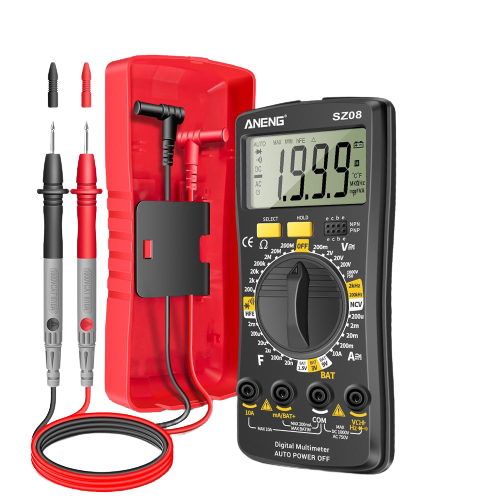
Briefly, the multimeter is used to measure the following. Don’t worry if you are a complete beginner and don’t know about the following just yet. Just remember the multimeter as a measuring tool.
- Resistance of a resistor
- The capacitance of a capacitor
- AC voltage and currents
- DC voltages and currents
- Circuit continuity
- Diode testing
- Transistor testing
- Frequency measurements
- The inductance of an inductor
- and much more
You see that it is that fundamental tool that you must have for your lab. Without it, your learning journey of electronics is incomplete, at least in my opinion.
The following post will help you in getting in your own first multimeter.
b. Breadboard
The next tool is the breadboard. A breadboard is a tool we use all the time when making any circuit. It is like a go-to tool when it comes to building physical circuits.
Remember, we use a breadboard to make circuits, but these circuits are prototypes.
Prototype circuits are those circuits that we use to test our results before sending out our design to the manufacturing house for high volume production.
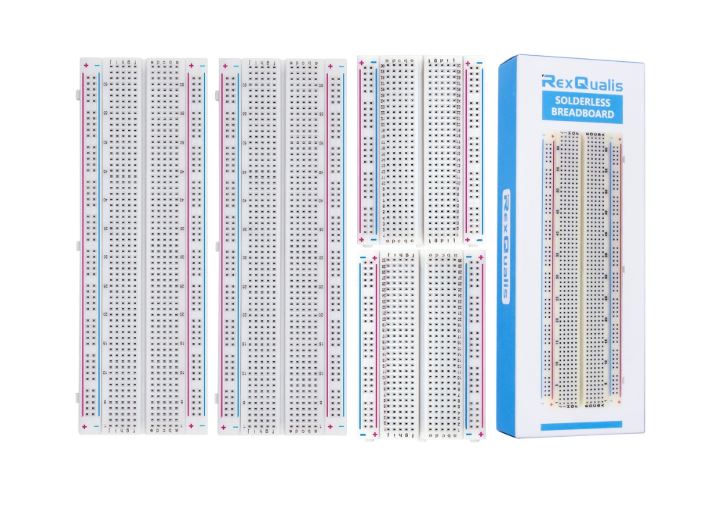
Every breadboard has rows and columns. We put our components in these rows and columns, depending on our design.
Also, we connect various components through connecting wires. In the end, we have a working prototype of a circuit (if everything goes the precise way it is supposed to be).
c. Connecting wires
As the name is explaining itself effectively. Connecting wires are copper wires which help us connect various electronics components together in the required manner to build circuits.
Connecting wires come in various shapes, sizes, and lengths. But they all serve the main above mentioned application.
Connecting wires come in various shapes, sizes, and lengths. But they all serve the main above application.

The above wires are perfect to work with a breadboard. But it is not necessary that you have to use them in every circuit.
d. Power supply
The next device that we would need for our basic lab is the power supply. No matter what type of circuit or project you work on. You require a power source to power them up.
Power supply just helps us achieve the above in an efficient and safe way.
You can consider a power supply as an energy supply source for our electronics projects and circuits. Without energy there will be no working circuits, that’s simple.
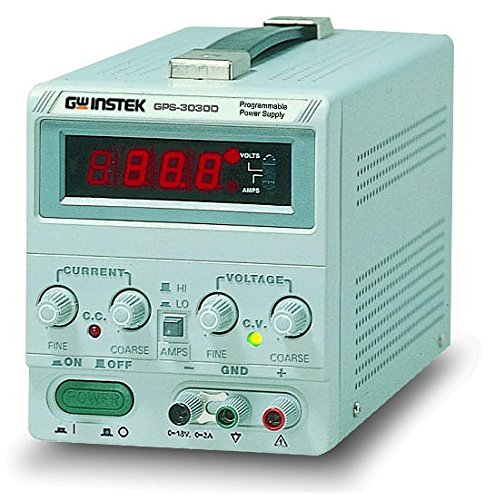
And that is why a decent power supply is a must have tool, device, or equipment for an electronics guy’s work environment.
e. Component tester
When you are a beginner and you got one project you are really excited about. At such moment you really enjoy your time.
You have a few components to work with.
But imagine if you are working on a bigger project. Or electronics repair is your job or the field you want to excel in. Then working with a lot of electronics components will be a bigger challenge for you.
Because it takes time to check each component whether is good or bad. To handle this we need to have one of the best electronics tools called the components tester.
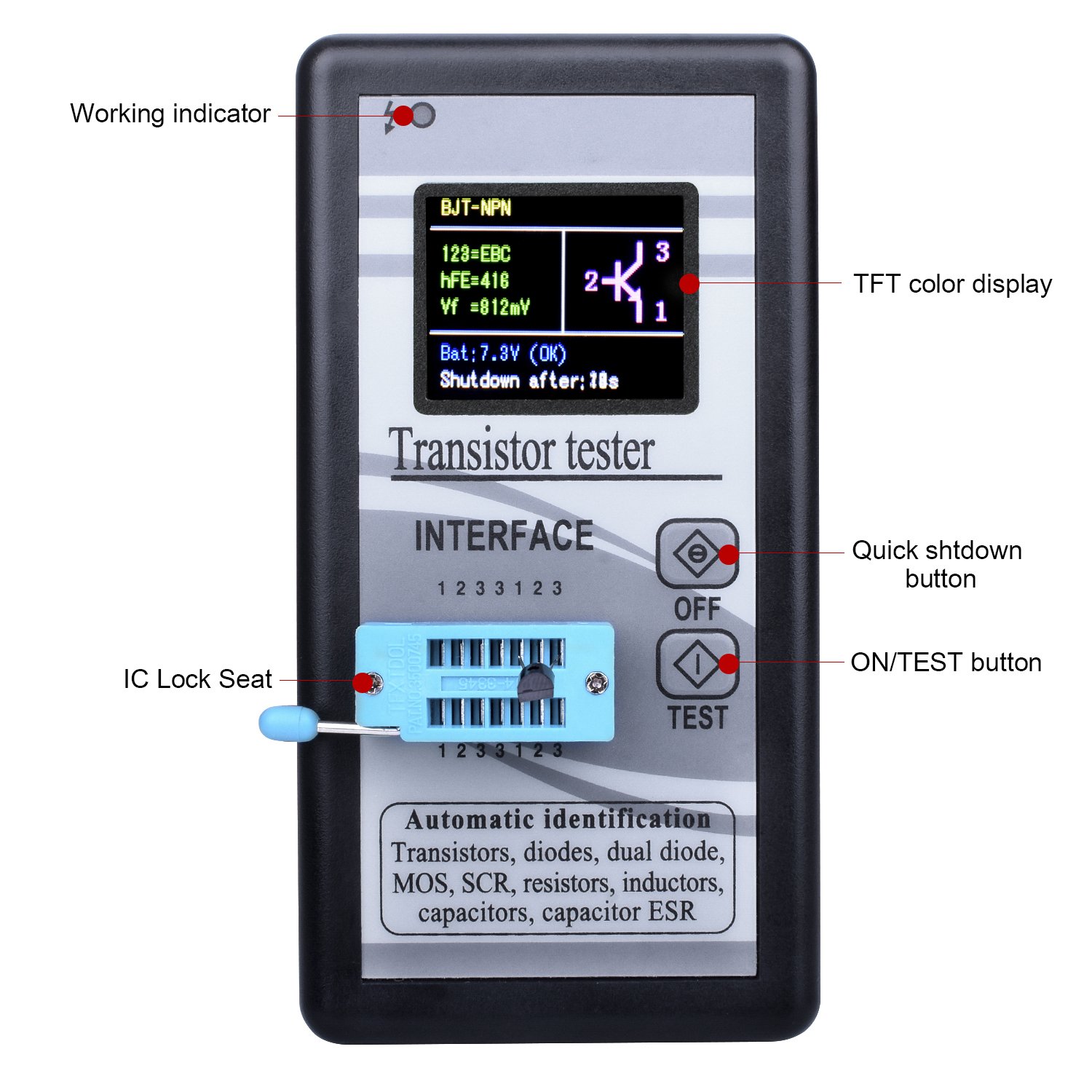
People also call it a transistor tester. But both names refer to the same device.
You just simply put any electronics component in this device, and it tells you right away if the component is good or bad. It also gives you its respective value as well, decreasing your multimeter usage as well.
f. Oscilloscope
Circuits are mostly of two types, i.e. analog and digital circuits. Analog circuit works with continuous signals while digital circuits work best with digital signals.
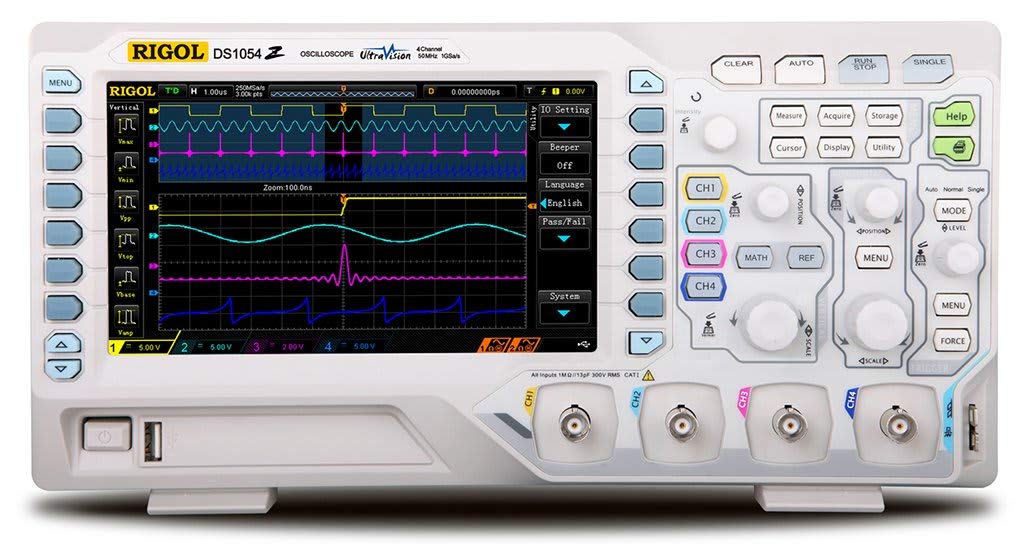
To study the behavior of both circuits at the output side we need a tool to visually help us see the signal, and analyze and measure its various parameters.
The tool which helps us achieve the above is called an oscilloscope.
g. Component kits
This one is very important in my opinion. Like if you don’t have proper components then how are you going to build circuits with. This just does not make any sense to me.
By electronics component tool kit, I mean a proper selection of various electronics components packed in well-organized boxes or bags.
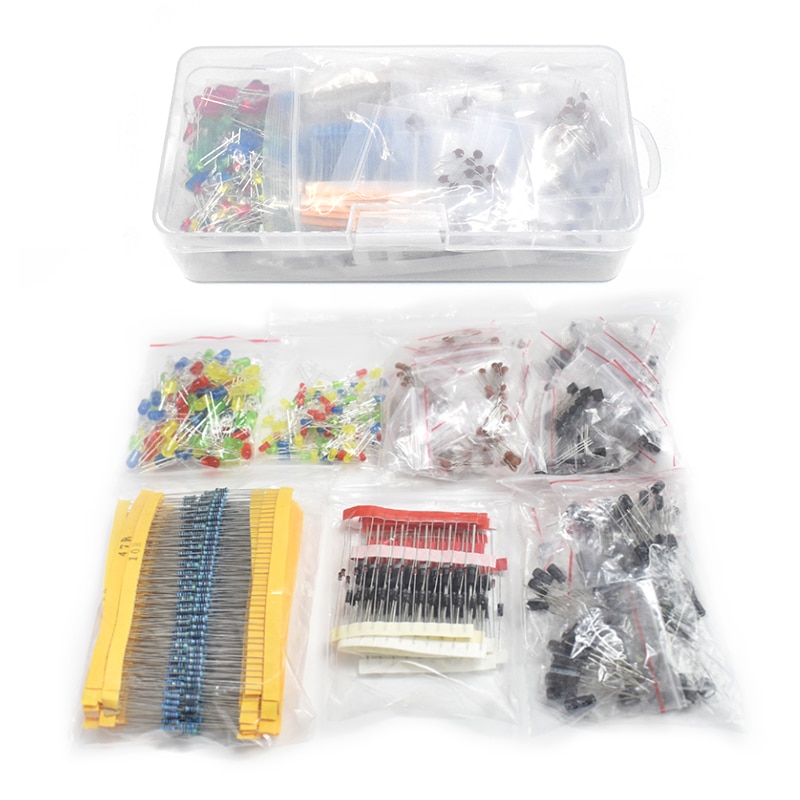
The most common use components are:
- Resistors
- Capacitors
- LEDs
- Diodes
- Transistors
- Potentiometers
- Buzzers
Of course, there are a lot of other components as well. But as a beginner, you will most probably be just working with the above ones.
4. Practice
The last part of the question, “What do you need to get started with electronics”, is practice. You may have heard this before like a thousand time, practice makes a man perfect. I agree with this, practice will make you a better electronics engineer.
The learning journey should be fun, and you should enjoy working on all the projects from heart. Take your time with each project, learn every detail of it. Then take a break enjoy your victory. And then start practicing another project.
Conclusion
Electronics is a very interesting subject to get into to understand all this digital world around you. So if you have decided to learn it, then believe me you will not regret this decision.
But as a beginner you may not have a clear idea from where to start learning electronics and what you need to get started.
Well, I wrote this article to just help you with these questions. In a short summary, all you need is a willpower. Because I believe we as human only require a willpower to do anything in our lives including learning electronics as well.
Other than will power you need the following as well:
- A correct mindset, a mindset that leads you in the right direction
- A starter book or course
- Basic lab tools
- Contact practice
So that is it. That all I have for to share about what you need to get started with electronics. I hope you enjoyed it.
Thank you and have grateful life.
Other useful posts:
- 15 Best Electronics Component Kits For Beginners
- 21 Best electronics tools & equipment for beginners
- Can I learn electronics on my own? (Simple Answer)
- Easy Get Started with Electronics (Step by Step Guide)
